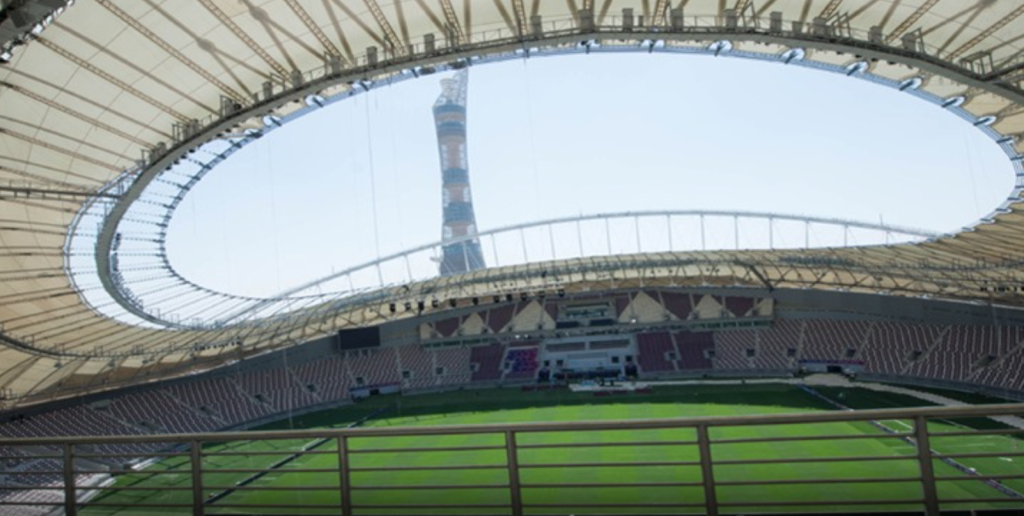
The first proposed host venue of the 2022 FIFA World Cup Qatar, Khalifa International Stadium, has been completed a full five years before the tournament begins, the Supreme Committee for Delivery & Legacy (SC), the organisation responsible for delivering the infrastructure required to host the tournament, has announced.
Speaking on the launch of Qatar’s first World Cup stadium, Hassan al-Thawadi, Secretary General of the SC, said: “The completion of our first stadium more than five years before the Qatar World Cup begins is an important milestone that reflects our determination to deliver a tournament the entire Arab world is proud to be a part of. As we promised in our bid, our innovative stadiums offer an unrivalled experience to fans and players alike. I’m proud we can show these off to the world and welcome fans with the hospitality this World Cup will be remembered for.”
The first event the renovated stadium will host is the 2017 Emir Cup final, Qatar’s most prestigious domestic football tournament. This builds on a rich history of hosting important local, regional and international events since the stadium was originally built in 1976, including the Gulf Cup on two occasions, the FIFA U-20 Youth World Championships in 1995, the 2006 Doha Asian Games, the 2011 AFC Asian Cup final and international friendlies between top world teams. The stadium will also host another Gulf Cup in December this year and the 2019 IAAF World Championships in Athletics before the FIFA World Cup kicks off on 21st November 2022.
Other new features include the installation of a larger roof over the entire spectator area, with an intricate net of German and Italian-made steel tension cables weighing 4,000 tonnes holding 92 panels in place, while the stadium will also be the first World Cup venue and the first stadium in the region to be lit by LED lighting, which is both more sustainable and more versatile than traditional lighting.
Even the pitch at Khalifa International Stadium has a rich story to tell: designed to be perfectly suited to Qatar’s climate, it was developed at the SC’s nearby Turf Nursery – the only one of its kind in Asia – and was laid in a new world record time of 13 ½ hours.
Hilal al-Kuwari, Chairman of the Technical Delivery Office at the SC, said: “It will be a proud moment for my team when the first ball is kicked here on Friday and I know all of Qatar appreciates the efforts of those who have helped deliver such an impressive venue. Fans of all ages and nationalities have a lot to look forward to when they visit the stadium, including the cooling technology we promised during our bid, a pitch that was developed at our one-of-a-kind Turf Nursery, and, of course, an immense atmosphere Arab fans alone are capable of producing. We still have seven stadiums underway, all due to be completed well in advance of the tournament, but this is a great demonstration of our progress.”
Located in the world-famous Aspire Zone, Khalifa International Stadium already offers a range of nearby leisure amenities. During the World Cup, however, fans will also be able to travel to and from the historic venue via a dedicated metro station on Qatar’s national metro project, QRail. Once completed, Qatar’s tournament infrastructure will keep journey times between all World Cup stadiums and accommodation locations below one hour, enabling fans to watch more than one live match per day for the first time in World Cup history.
